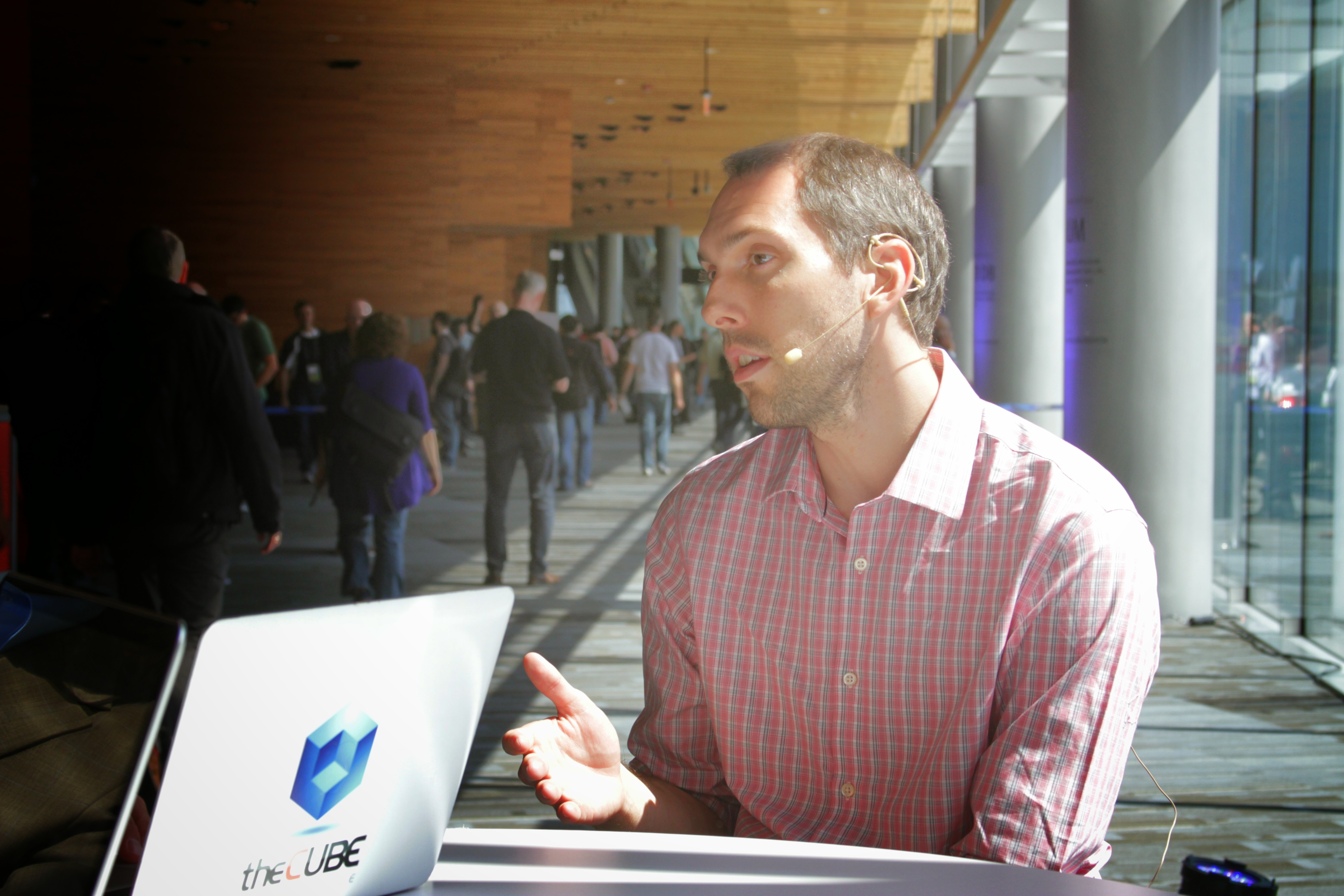 NEWS
NEWS
 NEWS
NEWS
 NEWS
NEWS
Jonathan Bryce, executive director of the OpenStack Foundation, says great progress has been made toward bringing OpenStack into the mainstream. In an interview with theCUBE, he explained some of those advances.
“If you go back a couple of years, you definitely had to have engineers to do a serious OpenStack deployment,” he explained. “But the software has come so far … that we see a number of deployments, like Walmart’s and others, that number in the thousands of nodes with teams that are very reasonably sized — 5, 10, 15 people — to run massive infrastructure that’s critical to these businesses.”
They’re doing this by focusing on two key areas: interoperability and federated identities — connections between Clouds.
“We have two big initiatives. The first one is around interoperability between OpenStack environments,” Bryce said. “The promise of OpenStack has always been this global footprint of Clouds that give you compute, storage, and networking in the same way, and that allow you to basically take advantage of this footprint wherever you need resources. That’s something that the community has worked toward for years, and we now have tests and validation in place that really make it a reality and prove how it works, which products and services are validated and in that, so that’s a big piece.”
And, according to Bryce, “The other one extends that even farther into federation between these Clouds. So our latest release had a big update around federated identity that lets you take one Cloud and connect it out to other OpenStack Clouds, and if I have a user account in this Cloud and a trust relationship with other Clouds, I can provision resources in any of them. So we’re really seeing the vision, really seeing the dream of what OpenStack can enable coming forward.”
To enable this collaboration, the OpenStack Foundation has developed certifications to help companies know which components will work with each other to meet their needs.
“There’s a logo, the OpenStack Powered logo, that these products and services get when they meet these requirements,” Bryce said. He explained further: “Sometimes you want a storage solution, sometimes you want compute, sometimes you want both. We require them to provide which components they support, which tests they pass, and to publish all that information. So you can see exactly what you’re getting, what capabilities are there.”
Companies mostly want to know how each component can help their business. “They want to know what app can I build on this, and what app can I move between one OpenStack cloud and another,” he continued.
One question facing the open source movement is still that of monetization. Bryce thinks the solution lies in innovations that surround the core platform. “As the market around OpenStack continues to mature … and it moves to those other areas of value, it’s not just about compute, storage and networking. It’s about Big Data, it’s about platform as a service, it’s about analytics, it’s about mobile, and that’s what we’re now enabling.”
Bryce has seen huge community support for OpenStack’s advances. “There’s something that is a true community movement here that I just have never seen before.”
For its Kilo release, it had “over 1,500 individuals that contributed code in six months for that release” – from over 140 companies. And somewhat surprisingly, some of the top contributors are users, not vendors. These include companies like Yahoo and Comcast “who are contributing and driving it back to user needs, always keeping us focused on that. And that has been such a huge piece of what’s made OpenStack work.”
Watch the full interview below, and be sure to check out more of SiliconANGLE and theCUBE’s coverage of OpenStack Summit Vancouver 2015.
THANK YOU